Research news
2025 ASCO Award Recipients: Teresia Perkins and Mathew Krick
Congratulations to Teresia Perkins and Mathew Krick, this year’s 2025 ASCO Grant Award recipients! Teresia and Mathew received the Medical Student Rotation (MSR) which provides support for clinical or clinical research oncology rotations to medical students interested in pursuing oncology as a career. Learn more about their projects and inspiration behind them below.
Teresia Perkins’ Project
Project Title: Examining Depression and Anxiety Among Non-English-Speaking Prostate Cancer Patients Undergoing Radiation Therapy

Teresia’s project explores how language barriers influence health outcomes, uncovering disparities beyond basic access to cancer treatment. Experiencing healthcare disparities firsthand—including losing her brother to inadequate care—ignited her passion for medicine and empathy for underserved patients. In this project, Teresia strives to address overlooked factors that significantly affect prostate cancer outcomes. This work is crucial, timely, and targets disparities exacerbated by language barriers and cultural stigma surrounding mental health. Revealing these hidden challenges will guide interventions to enhance care for vulnerable patient populations.
Teresia is profoundly grateful to her mentor Dr. Ariel Hirsch; her fellow BU students who have facilitated this study from inception; the entire BMC RadOnc team; the Boston University Chobanian & Avedisian School of Medicine research community; and the American Society of Clinical Oncology for their invaluable guidance and support throughout this transformative research journey.
Mathew Krick's Project
Project Title: Treatment Delays and Ultrasonography Findings in Uveal Melanoma
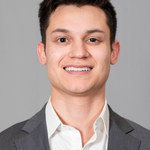 Mathew's project examines how treatment delays impact uveal melanoma (ocular melanoma) tumor growth over time. It will take place at the University of California, Los Angeles’ department of ocular oncology. “Obstacles to prompt care and treatment delays are often impacted by social determinants of health and structural factors. My project will not only provide insight into the rate of uveal melanoma growth in a cohort of patients but will also shed light on how structural factors, such as insurance barriers, affect how quickly patients can be admitted for surgery and radiation therapy,” Krick explains.
Mathew's project examines how treatment delays impact uveal melanoma (ocular melanoma) tumor growth over time. It will take place at the University of California, Los Angeles’ department of ocular oncology. “Obstacles to prompt care and treatment delays are often impacted by social determinants of health and structural factors. My project will not only provide insight into the rate of uveal melanoma growth in a cohort of patients but will also shed light on how structural factors, such as insurance barriers, affect how quickly patients can be admitted for surgery and radiation therapy,” Krick explains.
Congratulations to Cameron Hill ’26 and Ward Alkatish ’27 on Their Recent Honors!
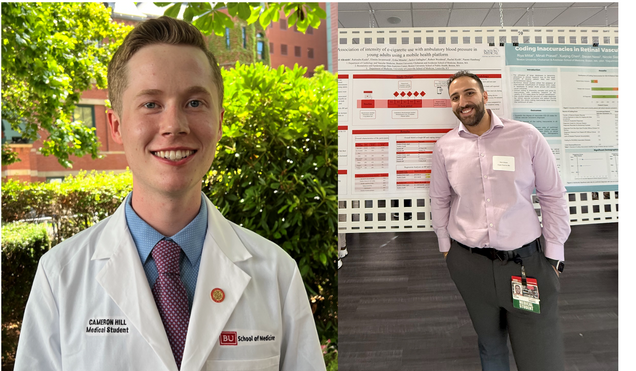
We’re proud to celebrate two of our outstanding medical students for their recent achievements in research and academic excellence.
Cameron Hill ’26 (pictured left) was selected as a 2025 American Academy of Neurology (AAN) Medical Student Scholarship recipient. As part of this honor, Cameron had the opportunity to attend the AAN Annual Meeting and present their latest research findings. This recognition highlights Cameron’s commitment to advancing the field of neurology through scholarly work.
Ward Alkatish ’27 (pictured right) was awarded the prestigious Alpha Omega Alpha (AΩA) 2025 Carolyn L. Kuckein Student Research Fellowship. This competitive fellowship provides $5,000 in support of independent student research and recognizes Ward’s dedication to scientific inquiry and innovation.
We applaud both Cameron and Ward for their achievements and look forward to the continued impact of their research!
Student Spotlight: Ward Alktaish
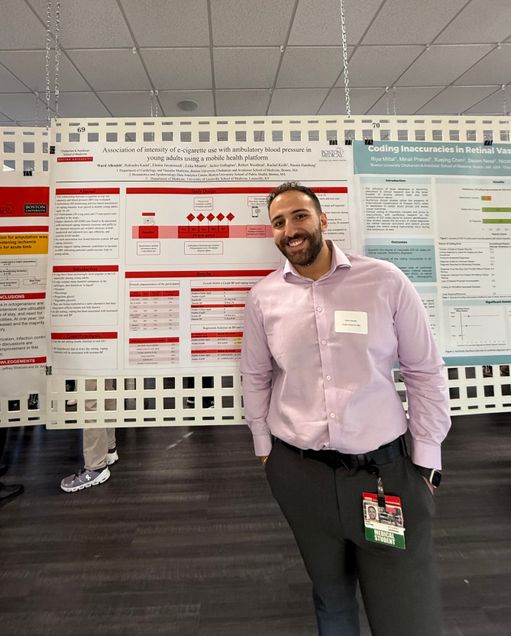 As part of a larger study with Dr. Naomi Hamburg, Ward Alktaish, class of 2027, is investigating the effects of e-cigarette use on cardiovascular health in young adults and user perceptions in real-life settings. Building on previous lab-based findings in Dr. Naomi Hamburg's lab of acute harmful effects from vaping; such as, elevated heart rate and blood pressure, this project explores the impact of exclusive e-cigarette use of those same effects in real-life settings outside of the lab. Motivated by the rising popularity of vaping among his peers and the limited research in this area, Ward saw this as a timely opportunity to contribute meaningful data to the conversation specifically around youth vaping and address this epidemic from multiple angles. This project is particularly compelling because of its focus on individuals who exclusively vape, removing the confounding variable of cigarette smoking. His findings could inform stronger e-cigarette regulations and support interventions to help young adults quit. Through this experience and with Dr. Naomi Hamburg as his mentor, Ward has developed a passion for working with large datasets and deepened his interest in cardiovascular medicine. Ward presented early findings at the Medical Student Research Symposium in January 2025 and is currently preparing the results for publication.
As part of a larger study with Dr. Naomi Hamburg, Ward Alktaish, class of 2027, is investigating the effects of e-cigarette use on cardiovascular health in young adults and user perceptions in real-life settings. Building on previous lab-based findings in Dr. Naomi Hamburg's lab of acute harmful effects from vaping; such as, elevated heart rate and blood pressure, this project explores the impact of exclusive e-cigarette use of those same effects in real-life settings outside of the lab. Motivated by the rising popularity of vaping among his peers and the limited research in this area, Ward saw this as a timely opportunity to contribute meaningful data to the conversation specifically around youth vaping and address this epidemic from multiple angles. This project is particularly compelling because of its focus on individuals who exclusively vape, removing the confounding variable of cigarette smoking. His findings could inform stronger e-cigarette regulations and support interventions to help young adults quit. Through this experience and with Dr. Naomi Hamburg as his mentor, Ward has developed a passion for working with large datasets and deepened his interest in cardiovascular medicine. Ward presented early findings at the Medical Student Research Symposium in January 2025 and is currently preparing the results for publication.
Mentor Spotlight: Dr. Charlene Ong, MD, MPHS
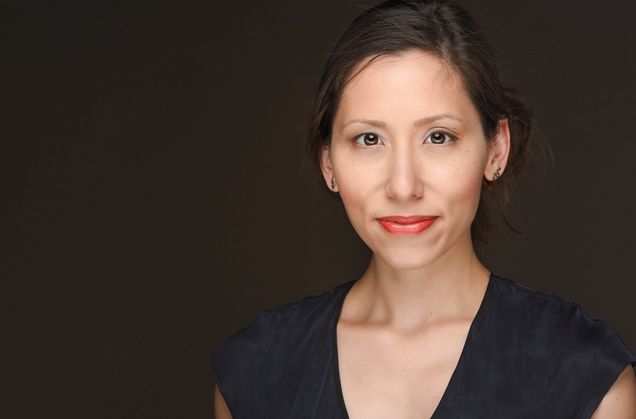 Dr. Charlene Ong, Assistant Professor of Neurology and Neurosurgery
Dr. Charlene Ong, Assistant Professor of Neurology and Neurosurgery
Dr. Charlene Ong joined Boston University/Boston Medical Center in 2018 as a clinical Neurointensivist and physician-scientist. She is currently an Assistant Professor of Neurology and Neurosurgery at the Chobanian & Avedisian School of Medicine and a lecturer at Harvard Medical School. Dr. Ong’s research focuses on developing and validating data-driven tools to guide clinical decision-making in patients with acute and catastrophic neurologic injuries, including ischemic and hemorrhagic stroke, traumatic brain injury, and anoxic brain injury. Using machine learning, physiologic biomarkers, and multimodal risk prediction methods, her goal is to reduce morbidity and improve treatment outcomes in the neurocritical care setting. Her work is supported by the NIH, the American Heart Association, and other institutional and foundational awards. She recently received the award for the 2025 Excellence in Research Mentorship, MD Program.
Dr. Ong on Mentorship:
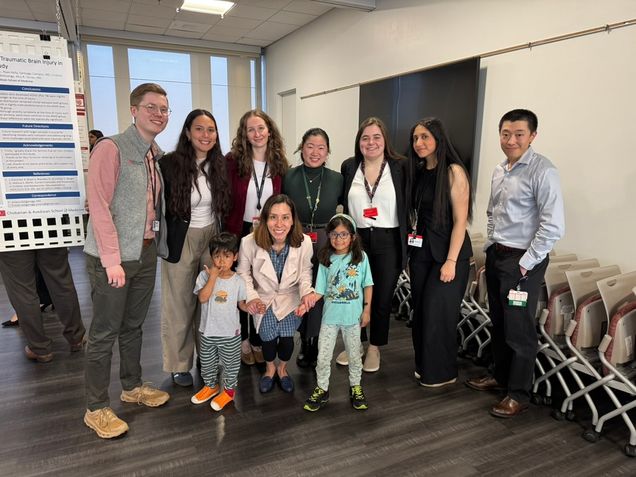
I believe that at nearly every level, there’s an opportunity to positively shape your immediate environment. For me, mentorship is one of the most meaningful ways to create that impact. I feel I can make an outsized difference in the lives of others by equipping them not just with support, but with the skills and confidence they need to navigate their own paths forward. I recognize that I would not have reached my current level without the investment of individuals who took the time to offer feedback, guidance, and advocacy on my behalf. Mentorship, then, serves two deeply personal purposes: it is both an expression of gratitude for the support I’ve received and a tangible way to shape the culture around me for the better.
My advice to mentees is to document your progress, challenges, and next steps. Taking time to reflect in writing helps clarify your thinking. I’ve found that this simple practice often leads me to answer many of my own questions and allows me to better identify the areas where I truly need guidance to keep moving forward.
For Dr. Ong, mentorship is not just about providing guidance—it’s about fostering a culture of excellence and collaboration in academic medicine. Through the Ong Lab, she has supported numerous students in making meaningful research contributions, which have led to multiple peer-reviewed publications and national presentations. Cameron Hill, Jonathon Song, and Charles Chen have co-authored peer-reviewed publications and presented at both national and departmental conferences. Additional students, including Aiman Altaf, Brian Tao, and Asritha Sure, are actively engaged in ongoing research projects. To learn more about student research and publications, visit Dr. Ong’s BUprofile.
My Research: NIH Medical Research Scholars Program
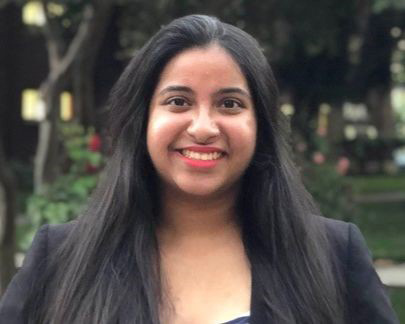 Minali Prasad, class of 2025, has participated in numerous research experiences. Minali starting working in Dr. Andrew Taylor’s ocular immunology lab where she learned several hands-on skills like mice eye dissections, gel electrophoresis, and Western blotting. After the COVID shutdown, Minali transitioned to conducting clinical research with Dr. Manju Subramanian, a surgical retina specialist at BMC. Minali has worked on a variety of projects evaluating retinal disease management, ocular manifestations of systemic disease, and ophthalmic health disparities.
Minali Prasad, class of 2025, has participated in numerous research experiences. Minali starting working in Dr. Andrew Taylor’s ocular immunology lab where she learned several hands-on skills like mice eye dissections, gel electrophoresis, and Western blotting. After the COVID shutdown, Minali transitioned to conducting clinical research with Dr. Manju Subramanian, a surgical retina specialist at BMC. Minali has worked on a variety of projects evaluating retinal disease management, ocular manifestations of systemic disease, and ophthalmic health disparities.
Most recently Minali participated in a dedicated research year program at the NIH through the Medical Research Scholars Program. Surrounded by friends with a passion for the process of scientific discovery, Minali designed and conducted projects on retinal disease pathophysiology, multimodal retinal imaging, and vision-related quality of life with Dr. Emily Chew and Dr. Catherine Cukras. Learn more about these research papers through Minali’s BU Profile. If you are interested in the NIH Medical Research Scholars Program applications are currently open.
Medical Student Summer Research Program 2024
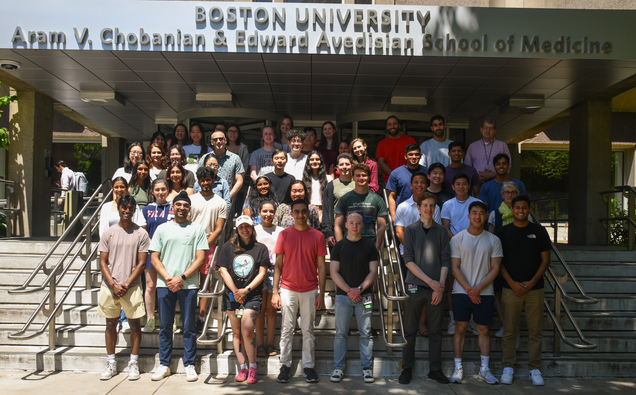 The Medical Student Summer Research Program (MSSRP) wrapped up for the summer of 2024. Thanks to all the mentors and research groups that participated in training the 18 students from the LEADS research track and 29 MSSRP students. The program included short talks by the researchers and we look forward to learning about your progress at the 2025 Research Symposium on January 16th.
The Medical Student Summer Research Program (MSSRP) wrapped up for the summer of 2024. Thanks to all the mentors and research groups that participated in training the 18 students from the LEADS research track and 29 MSSRP students. The program included short talks by the researchers and we look forward to learning about your progress at the 2025 Research Symposium on January 16th.
Kayra Cengiz Honored by Massachusetts Medical Society
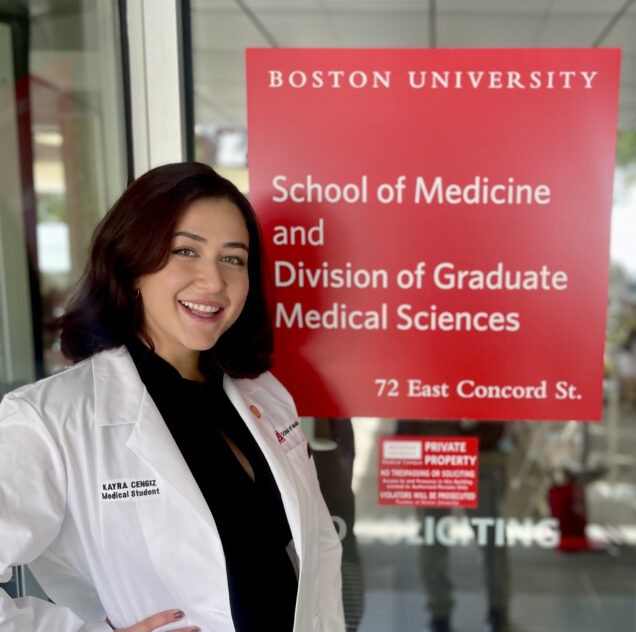
Kayra Cengiz, a rising second-year medical student, won third place for her poster search, “Visual Proficiency in Medicine: A Rubric-Based Educational Video for Physician-Patient Communication,” at the Massachusetts Medical Society (MMS) 15th research poster symposium held in conjunction with its signature education event, Future Health: Best Practices for Advancing Care held on March 22 at the MMS.
Kayra is an active participant in the Learn, Experience, Advocate, Discover, and Serve (LEADS) curriculum at the school. In this role, she is involved in research that focuses on the utilization of visual aids in clinical settings to improve patient understanding, particularly in environments where linguistic barriers exist. Additionally, Cengiz is involved in investigating adverse effects related to immune checkpoint inhibitors. Visit the Learn, Experience, Advocate, Discover, and Serve (LEADS) webpage to learn more about this program.
Read the full story here.
Maya Chan Selected to Present at National Society of GIM Annual Meeting
Maya Chan (Class of 2026) participated in Boston University’s Medical Student Summer Research Program (MSSRP), where she met her mentors, Dr. Sushrut Waikar and Dr. Sophie Claudel, from the Department of Nephrology and at Boston Medical Center and the Chobanian & Avedisian School of Medicine. Her project focused on studying Chronic Kidney Disease of Unknown Etiology (CKDu), a debilitating disease that predominantly impacts young agricultural workers in Central America and southern Asia. CKDu diagnosis often occurs at late stages and among individuals who have extremely limited access to healthcare. The exact cause of CKDu is actively being studied in endemic communities, but there is little research on the presence of CKDu in other countries. Maya has continued to investigate the presence of CKDu in Latinx communities in the United States, co-authoring the manuscript, "CKDu in the United States: Challenges and Opportunities." She was selected to give an oral presentation at the upcoming National Society of General Internal Medicine Annual Meeting, "State policy on standard dialysis access for undocumented immigrants and temporal changes in kidney disease-associated mortality among Hispanic individuals in the U.S." She will also be participating in Kidney TREKS, a week-long research retreat and long-term mentorship program held at the University of Chicago. Maya hopes to continue research that addresses disparities in kidney-related health outcomes.
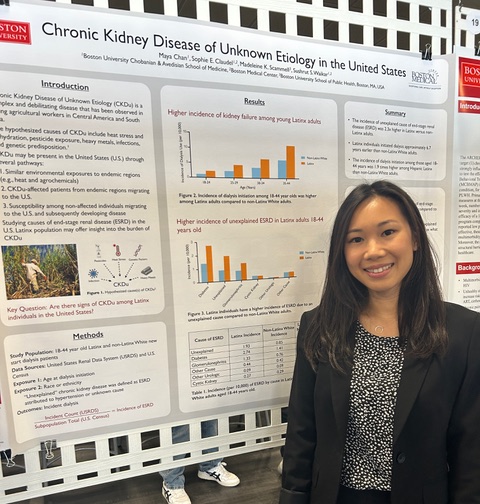
“I would not have these opportunities if not for the Medical Student Summer Research Program (MSSRP), which I participated in last summer,” she said. “Since then, I have continued to work with my incredible mentors, Drs. Sushrut Waikar and Sophie Claudel, studying chronic kidney disease of unknown etiology.”
Medical Student Research Symposium
The annual Medical Student Research Symposium, sponsored by the Medical Student Research Program, was held on Monday, Jan. 29, in Hiebert Lounge. On display were posters representing the research undertaken by 75 medical students, 48 of whom participated in the Medical Student Summer Research Program (MSSRP) during the summer 2023, as well as students engaged in the Learn, Experience, Advocate, Discover and Serve (LEADS) research track and longitudinal research programs, third- and fourth-year research electives and the MD-PhD program.
Read more about the medical students research symposium and the award winners.
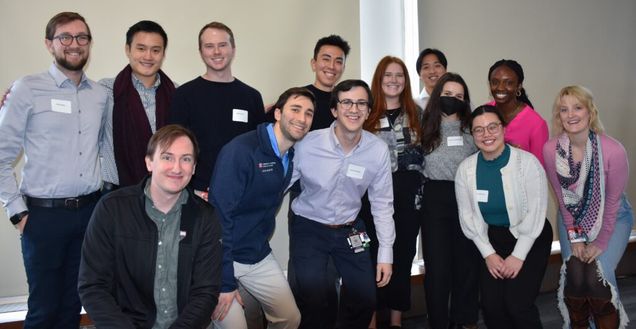
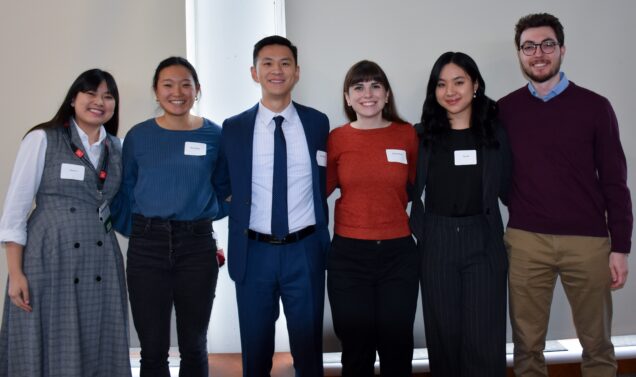
2024 Medical Student Research Symposium
The 2024 Medical Student Research Symposium is on January 29, 2024 from 12-2:45 pm, Hiebert Lounge.
For more information including how to submit an abstract for the symposium or nominate a mentor for an award please visit the Research Symposium webpage.